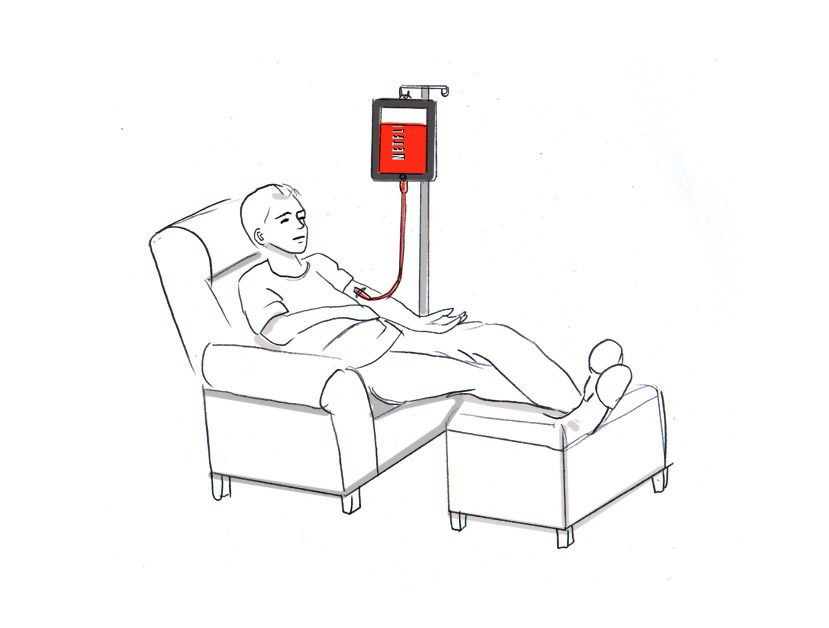I just binge watched season one of “Maron.” I binge-watched it like a boss. It was awesome, watching every show back to back to back was exhilarating, and I loved every minute of it.
Now I am dead inside.
There is no real difference between binge-watching and other forms of binging. Drug-binging, booze-binging, binge-eating, binge- shopping – you can substitute all of them for each other, and you can definitely substitute them for TV, because they all act the same way: beginning by giving you an intense adrenaline kick and ending with you depressed and feeling bad about yourself.
Binge-watching has become the cool and fun way to watch TV. But I think we all forget that the word “binge” is one that carries a negative connotation. Binging on anything is not healthy – even binging on grapefruits will jack up your system but good. So even though we know it is just TV, we still must recognize binge-watching as an addiction. A really fun addiction that we can post about to our friends, but an addiction nonetheless.
Like any sort of addiction, binge-watching is a commitment. To quote the great old-school rapper and wizened sage, Big Daddy Kane, “Ain’t no half steppin’.” If you watch a few episodes of a show in a row and then get back to it a few days later, then what you are doing is not binge-watching. All you are doing is just watching TV. Binge-watching, or binge-anything for that matter, requires a major time requirement – a requirement that will take precedence over everything else. So on the one hand you may need to go to bed because you’ve got a big presentation at work in the morning, but on the other hand you are knee-deep in season three of “Dexter” and you sure as hell aren’t going to quit watching now. So you continue to binge and that next morning you feel bad that you did… only to feel better when you go back to your binging.
Just as with binge-eating, with binge-watching there are times that it doesn’t even matter what you are watching as long as you are binging. Binge-watching doesn’t just have to be for the high-quality, critically-acclaimed shows like “Mad Men” or “Breaking Bad.” Thanks to Netflix, I have friends who have binge-watched entire seasons of “Saved By The Bell.” They hole up in their apartments like heroine addicts, not showering, not answering their phones, and feeling nothing but shame and embarrassment. And if they move on to “Saved By The Bell: The College Years,” you know they’ve got a full-blown, binge-watching addiction.
And once you binge watch-once, that’s it. You are hooked. Watching TV any other way is just not as exciting. Watching it from your DVR (yawn) or watching it live (huh?) doesn’t give you that rush. My wife and I binge-watched “True Detective” in one weekend and it was an amazing, shared experience but once it ended we became morose and snippy with each other. Now, I’d like to blame it on the dark and disturbing subject matter that was “True Detective,” but deep down I know it was because our binging was over. We weren’t truly happy with each other until we moved on to the second season of “Game Of Thrones.” That is the vicious cycle of any sort of binging.
So, like any other binging, you chase that rush. You keep looking for new shows to pummel through over in the course of twenty-four hours. You not only want your fix, you need your fix. You start chasing that TV dragon even though you know full well you will never catch it. For example, I am about to start binge-watching season two of “Orange Is The New Black.”
I am already worried about how I’ll feel once I’m finished.
Image Credit(s): Kiersten Essenprei


























